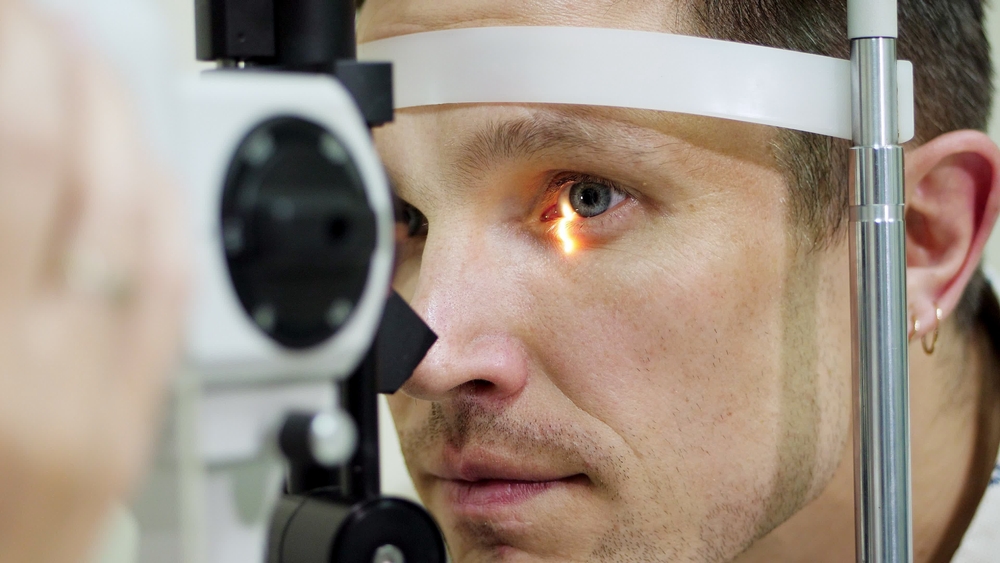
When was the last time you had your eyes examined? If it's been a while, it's time to prioritize your eye health. Regular eye exams are essential for maintaining good vision and detecting potential eye conditions early on.
What Does a Comprehensive Eye Exam Involve?
A comprehensive eye exam involves several tests that assess the overall health of your eyes. One of the most common tests is the visual acuity test, which measures how well you can see at various distances. This test typically involves reading letters on a chart from a specific distance.
Another important test is the refraction test, which determines your exact eyeglass prescription. During this test, the optometrist will use a series of lenses and ask you to identify which lens provides the clearest vision. This helps correct any refractive errors, such as nearsightedness or farsightedness.
In addition to these tests, a comprehensive eye exam may also include a tonometry test to measure eye pressure, a visual field test to assess your peripheral vision, and a slit-lamp examination to examine the structures of your eyes in detail. These tests, along with others, help the optometrist evaluate your eye health thoroughly.
Eye Conditions That Can Be Detected Through Regular Eye Exams
Regular eye exams not only help maintain good vision but also play a crucial role in the early detection of various eye conditions. Conditions such as glaucoma, cataracts, and macular degeneration can be detected through these exams, allowing for timely treatment and management.
Glaucoma is a progressive eye disease that damages the optic nerve and can lead to vision loss if left untreated. Regular eye exams can help detect increased eye pressure, a common sign of glaucoma, allowing for early intervention to prevent further damage.
Cataracts, which cause clouding of the eye's lens, can also be diagnosed during a comprehensive eye exam. The optometrist will look for signs such as blurred vision, sensitivity to light, and reduced color perception. If cataracts are detected, the appropriate treatment options can be explored.
Additionally, regular eye exams can detect age-related macular degeneration (AMD), a leading cause of vision loss in older adults. By examining the macula, the optometrist can identify signs of AMD, such as drusen deposits or pigment changes. Early detection can help slow down the progression of AMD and preserve vision.
The Benefits of Regular Eye Exams
Regular eye exams offer numerous benefits beyond maintaining good vision. They provide an opportunity to detect eye conditions early, allowing for prompt treatment and management. By catching eye problems in their early stages, you can often prevent further vision loss and maintain optimal eye health.
A comprehensive eye exam can also reveal underlying health conditions. The eyes are often referred to as the windows to the body, as they can provide insights into your overall well-being. During an exam, an optometrist may identify signs of diabetes, high blood pressure, or even certain types of cancers.
In addition to these medical benefits, regular eye exams can also ensure that your eyeglass or contact lens prescription is up to date. As our vision changes over time, it's important to have the correct prescription to avoid eye strain, headaches, or other discomforts.
How Often Should You Get a Comprehensive Eye Exam?
The frequency of comprehensive eye exams may vary depending on your age, overall eye health, and any pre-existing conditions. As a general guideline, it is recommended to have a comprehensive eye exam every one to two years. However, certain individuals may require more frequent exams, such as those with diabetes, a family history of eye conditions, or individuals over the age of 60.
Children should also have regular eye exams to ensure healthy vision development. The American Optometric Association recommends that children have their first eye exam at six months of age, followed by additional exams at age three and five. Regular eye exams during childhood can identify and address any vision issues that may affect learning and development.
Schedule Your Next Eye Exam with Stratford Eye Care Today
Regular eye exams are an essential part of maintaining good vision and overall eye health. These comprehensive exams can detect eye conditions early, allowing for timely treatment and management. They also provide an opportunity to identify underlying health issues and ensure that your eyeglass or contact lens prescription is up to date.
Make your eye health a priority today, schedule your comprehensive eye exam and ensure optimal vision and eye health for years to come. Visit Stratford Eye Care at our office in Hayward, California. We are committed to providing quality eye care services and products for the entire family. Please call (510) 274-5135 to book an appointment today.







